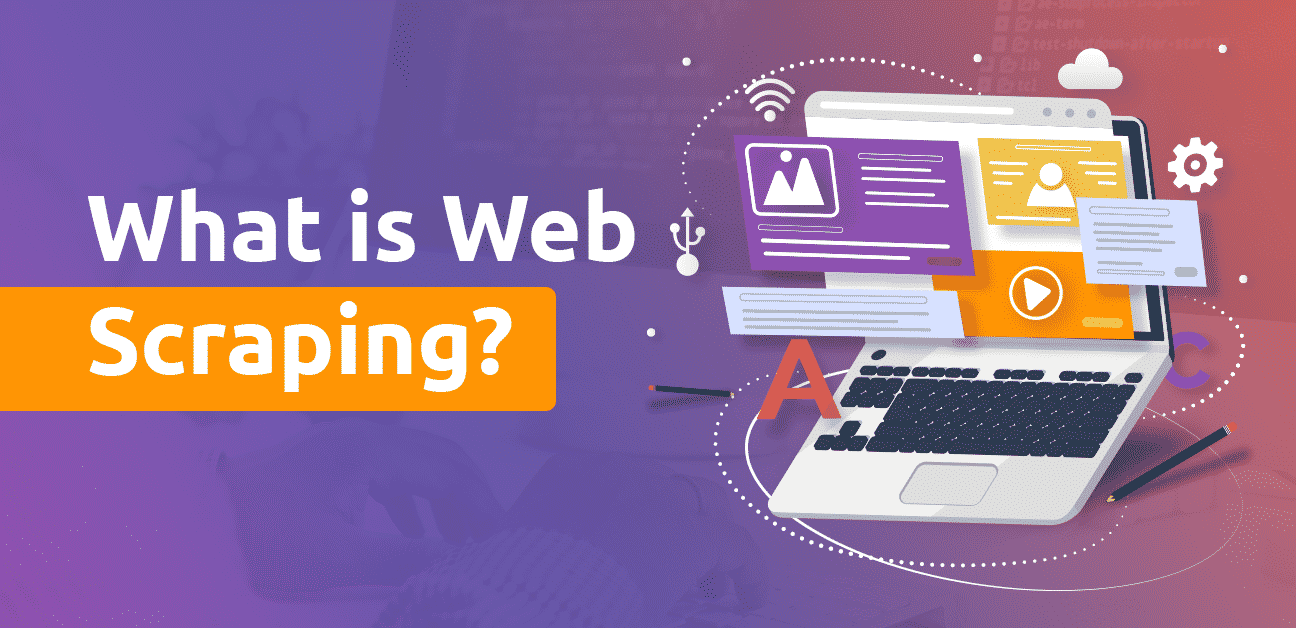The business world is continually changing. Ever since the digital realm and business world have merged to form the modern corporation – innovation simply doesn’t stop. These days, data-driven is the way to go for most modern businesses, and this philosophy relies solely on the amount of data a company has, how they use it, and how they collect it.
Web Scraping
For years now, web scraping has been the primary way to collect large amounts of data for business applications, and the process itself has changed drastically over the years. In this article, we’ll explore web scraping, how it’s used, as well as the two different approaches to data harvesting.
What is Web Scraping?
Web scraping is a process of data extraction. This process is conducted by software known as web crawlers or data harvesters. Depending on how you handle web scraping, the data harvester can collect varying types of information.
The primary goal of web scraping agents is to collect as much relevant, high-end information as possible from relevant sources. Any web scraper can collect data, but the quality of data that is collected defines the sophistication of the web scraping agent.
The better the data, the less refinement it has to go through before it’s used for analysis and decision making. That’s why the web scraping agent needs to be pretty well-equipped, set up, and programmed.
How is Scraping Used
Web scraping is technically used to extract as much data for a wide range of purposes. Data harvested from websites can either be used to streamline the current internal operations of any given corporation, store as much data for further analysis, or gain an edge among the competition.
While the web scraping process itself is very straightforward, what happens with the data after it’s collected is anyone’s game. Some companies use it to spy on their competitors, others use it to improve their business dealings, and some use the data collected to better understand trends. Some of the most prominent uses of web scraping are:
- Collecting SEO data
- Review monitoring
- Price scraping
- Brand protection
- Marketing data collection
- Lead generation
These are just some of the highlights. The most widespread use case of web scraping agents is search engines such as Yahoo, Bing, and Google. These companies use web scraping to scour the entire internet and index as many websites as possible.
These companies have pioneered data scraping technology and brought it to the mainstream, where corporations can use it for various purposes.
Two Approaches to Scraping
Now that we understand the fundamentals, there are two different ways to go about web scraping. The two ways to go about web scraping is to use third-party scraping tools such as web scraping APIs and proxies.
Both of these measures have their respective pros and cons, and depending on which ones you go with, you have to expect different results. They’re also used differently, as third-party scraping tools are best suited for more niche applications, while proxy scraping can be customized to any degree. There are a couple more ways to go about data harvesting, but all of them rely on one of these two approaches.
Their Main Differences
The primary differences between utilizing third-party web scraping tools such as web scraping APIs and proxies rely on their application.
When it comes to web scraping APIs, the situation can get pretty tricky. Depending on the API in question, the price, complexity, and sophistication of the software can either be used to harvest data from huge data centres but can just approach smaller scraping objectives.
While very useful for smaller-scale scraping, they don’t fare nearly as well when it comes to large-scale operations compared to in-house proxy scraping tools.
In-house proxy scrapers are far more complex, expensive, and elaborate than third-party scraping APIs, and that’s what gives them the ability to scrape virtually anything you want. They’re far more customizable, adaptable, and have the potential to be vastly more sophisticated than their API counterpart.
That being said, they’re ideal for large-scale corporate applications, as long as you have someone to develop and deploy them properly. Unlike the APIs, these web scrapers require a feed of proxies, which enable their function but drive up their price by a considerable margin.
In Conclusion
Web scraping is a crucial business practice and depending on how and what you’re looking to scrape, you’ll want to go with a different approach. If you’re looking for a more niche web scraping operation, third-party web scraping APIs are going to do the trick just fine. Still, if you’re looking for a top-shelf solution for larger operations, you’ll have to go with an in-house proxy-based data harvester. Now, if you want to learn more about web scraping API, we recommend reading this blog post and finding out more.
